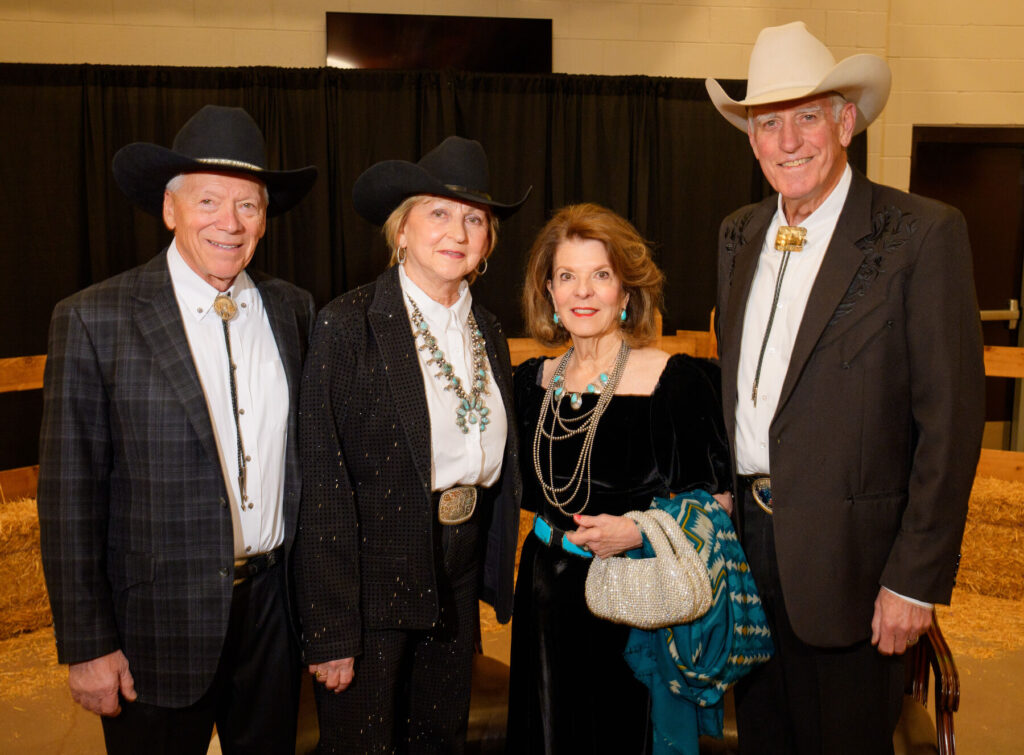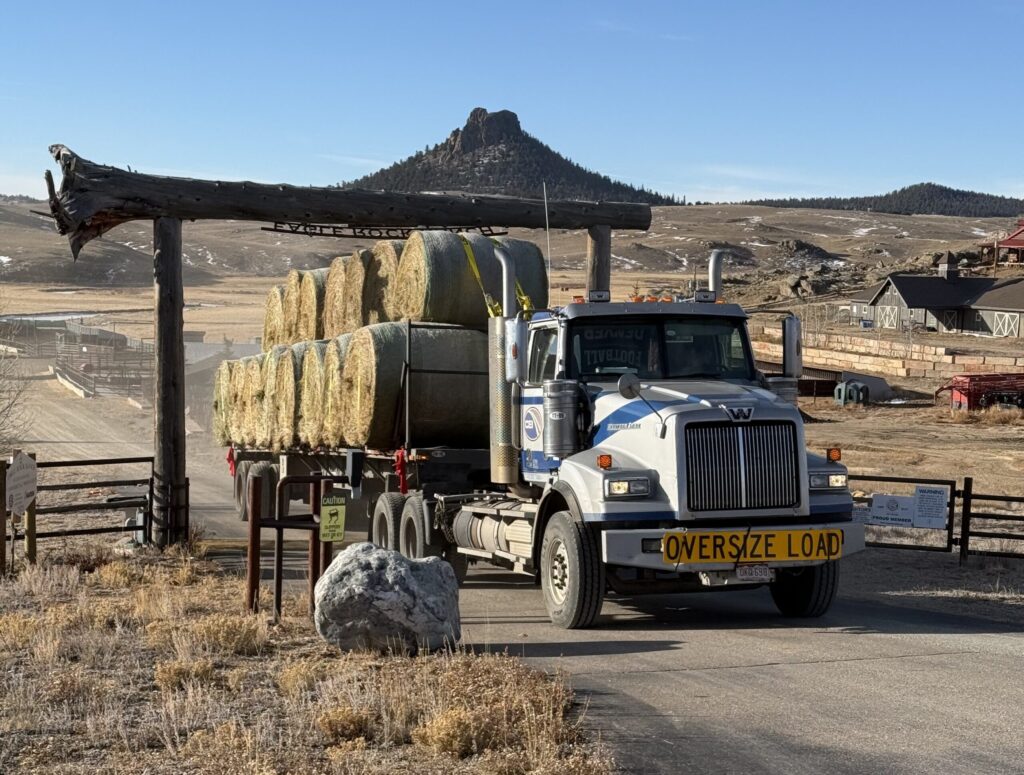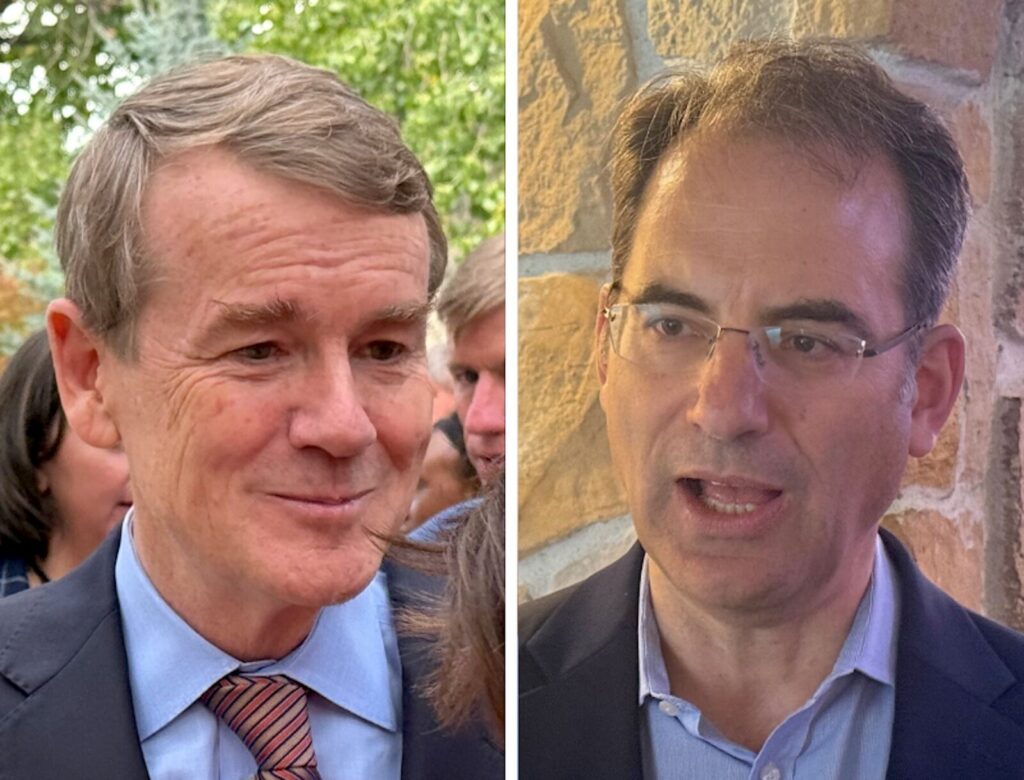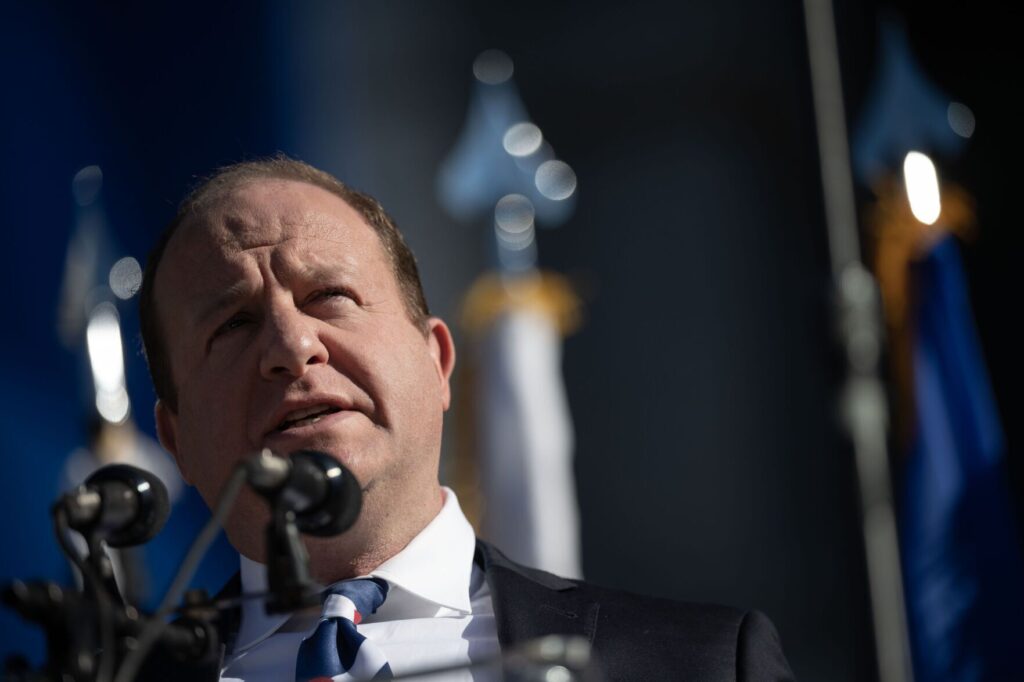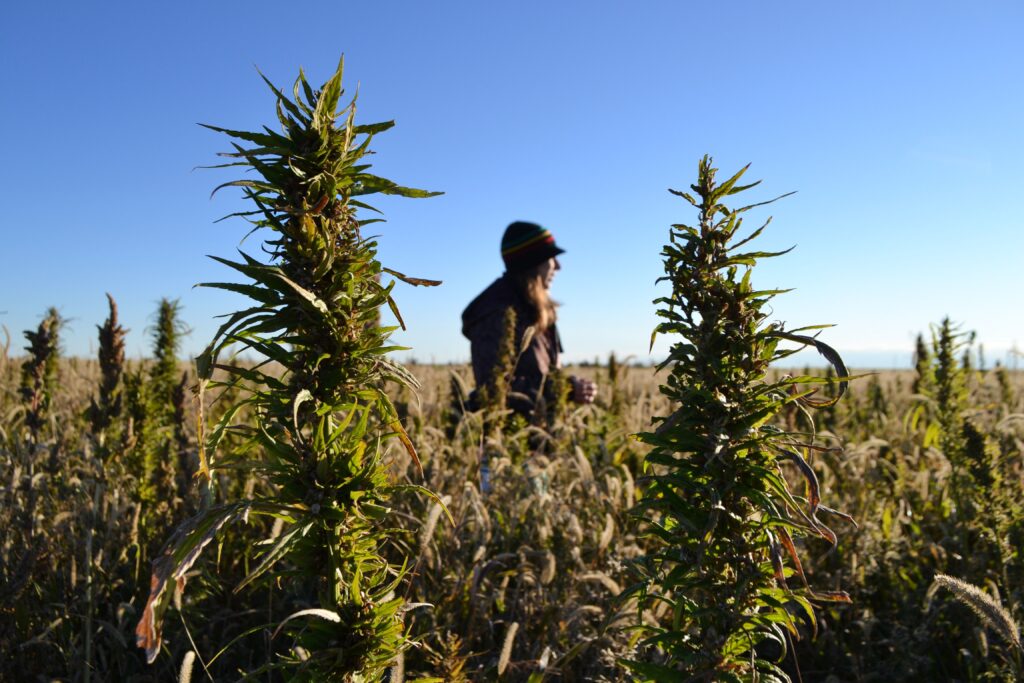US Fish and Wildlife Services tells Colorado: No more wolves from Canada, Alaska
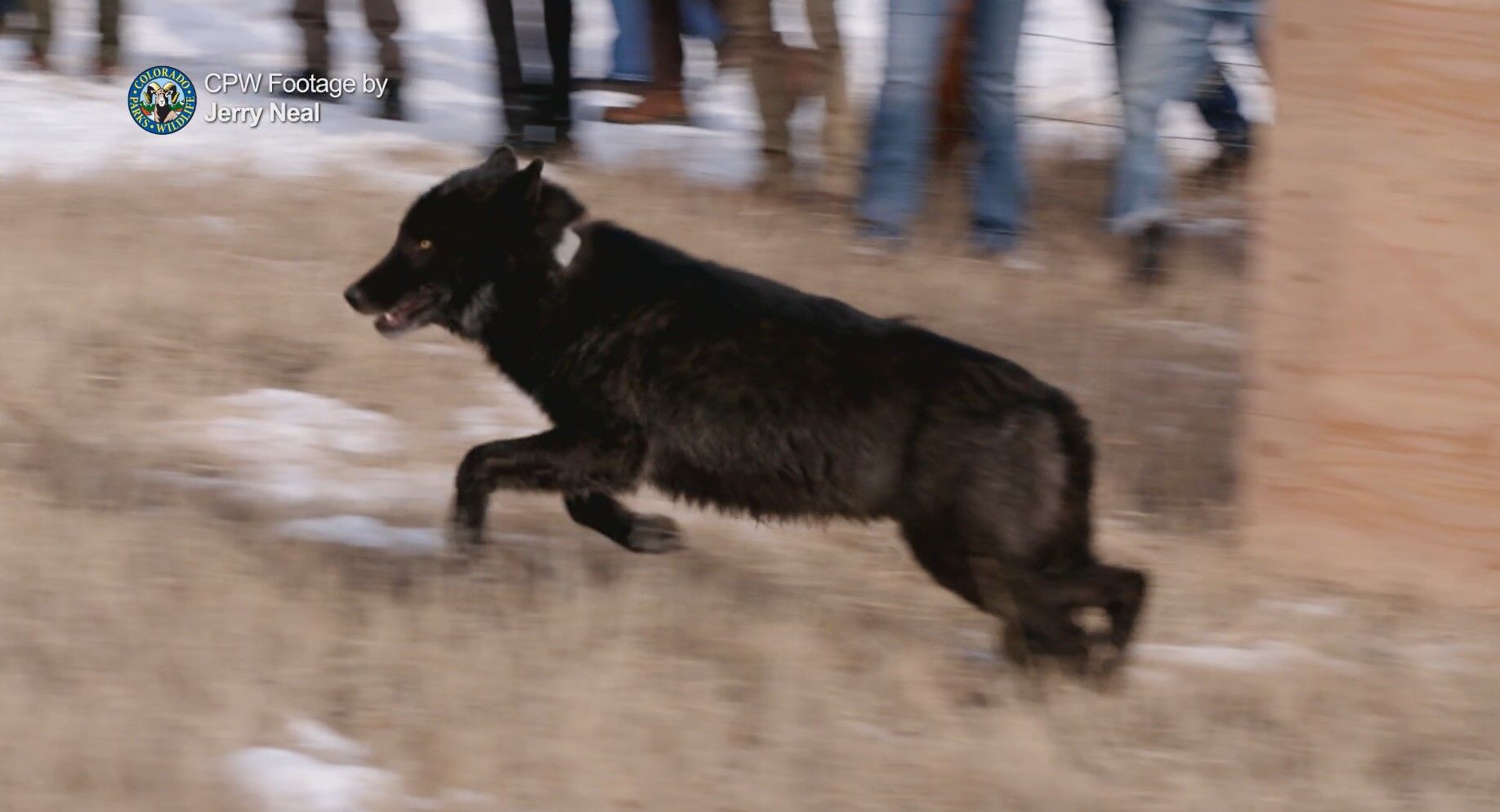
Efforts by Colorado Parks and Wildlife to bring in more wolves from Canada later this year may have hit a snag after the U.S. Fish & Wildlife Service told the state it may not do so.
In an Oct. 10 letter, Brian Nesvik, director of USFWS, told Gov. Jared Polis and Jeff Davis, director of Colorado Parks and Wildlife (CPW), that Colorado is not allowed to bring in gray wolves from Canada or Alaska. Any wolves brought to Colorado as part of the wolf reintroduction program must come from one of the lower 48 states, the agency said.
Nesvik cited what’s called 10(j) rule, noting USFWS authorized the state to release and establish gray wolves in Colorado as an experimental population “subject to Service oversight.”
However, the 10(j) rule only allowed Colorado to obtain wolves from the delisted northern Rocky Mountains (NRM) population area. That’s limited to Idaho, Montana, Wyoming, the eastern third of Oregon, the eastern third of Washington and north-central Utah.
“We have reason to believe that CPW may be seeking to capture, transport and/or release one or more wolves” from outside the NRM outlined in the 10(j) rule, Nesvik wrote. “To the extent that these reports are true, such actions are violative of the 10(j) rule.”
Nesvik wrote that Colorado Parks and Wildlife must “immediately cease and desist any and all efforts related to the capture, transport and/or release of gray wolves” not obtained from the NRM region.
In a statement, Colorado Parks and Wildlife said it will “continue to evaluate all options to support this year’s gray wolf releases in alignment with the approved Colorado Wolf Restoration and Management Plan and the 10(j).” The state agency also said it is evaluating the letter from USFWS.
The agency said it has a memorandum of understanding and a recently-signed contract with the British Columbia Ministry of Water, Land and Resource Stewardship, the Canadian agency where Colorado got 15 wolves from in January.
That contract will allow Colorado to bring in another 10 to 15 wolves this winter, the state agency said. Additionally, Colorado Parks and Wildlife said the memorandum of understanding was based on consultation with USFWS and was signed prior to the Nesvik letter.
Colorado also pointed out that gray wolves in Canada are not listed under the U.S. Endangered Species Act, so that provisions of that law do not apply to “these unlisted populations.”
Colorado has struggled to find sources for gray wolves. In 2023, Idaho, Montana and Wyoming all made it clear they would not allow Colorado to take gray wolves from their states.
Oregon agreed to send wolves in Dec. 2023, but some of those wolves came with problems, specifically a history of killing livestock, in direct contravention of the state’s wolf management plan, which said CPW would not bring in animals with a history of depredation.
Two of those wolves mated and produced a pack of cubs. The Copper Creek pack is now believed to be responsible for numerous livestock killed in Grand and Pitkin counties in 2024 and 2025.
Nesvik, the federal wildlife official, is the former head of Wyoming Game and Fish and is not a fan of the Endangered Species Act. He was confirmed in August by the U.S. Senate on a vote of 54 to 43, with Colorado Sens. Michael Bennet and John Hickenlooper voting against him.
The Endangered Species Coalition in August said that with Nesvik’s appointment, the Trump administration is declaring “war on wildlife.”
In related news, the Pet and Livestock Protection Act offered by U.S. Rep. Lauren Boebert, R-Wellington, has now cleared its committee hearing and is awaiting debate and a vote from the full House.
The proposal won a 27-14 approval from the House Natural Resources Committee and is headed to the House floor on Oct. 3.
The measure, which is co-sponsored by Colorado Reps. Jeff Hurd of Grand Junction, Jeff Crank of Colorado Springs and Gabe Evans of Fort Lupton, would delist the gray wolves.
Boebert, Crank and Hurd are all members of the natural resources committee, as is Rep. Joe Neguse, D-Lafayette.
In a dissenting opinion, Rep. Jared Huffman, D-Ca., the ranking member of the Natural Resources Committee, said passing the measure “would prematurely strip federal protections for the gray wolf across the lower 48 states, ignoring scientific evidence that the species remains vulnerable in many parts of its historic range.”
Huffman also claimed the act would lead to the slaughter of wolves, pointing to hunts and changes in law in Wisconsin, Idaho and Montana.
The delisting would take place within 60 days of the proposal’s passage, assuming it becomes law, and it would also prohibit judicial review of the rule.
A coalition led by U.S. Rep. Greg Lopez, now a candidate for governor, sent a letter to Nesvik on Oct. 20, seeking documentation on permits and authorizations issued by USFWS to CPW for the importation of the Canadian wolves earlier this year.
Its request, the group wrote, would ensure transparency and legal compliance in the international translocation of a federally listed species, noting that U.S. Fish and Wildlife is the only entity with the legal jurisdiction to issue and validate
import permits for gray wolves originating from outside the United States.
The group includes five livestock and wildlife organizations, the Colorado Outfitters Association and the Colorado Conservation Alliance.




